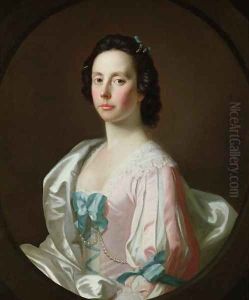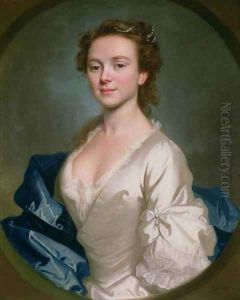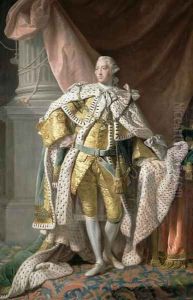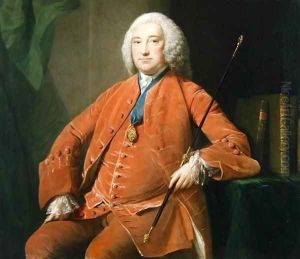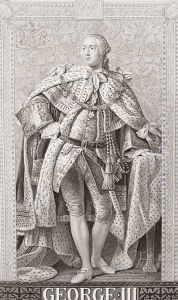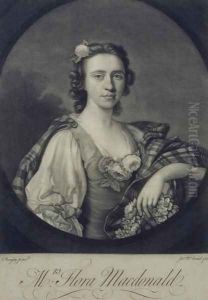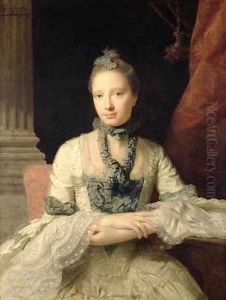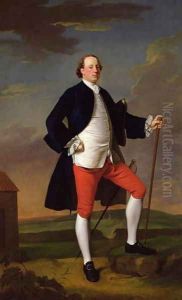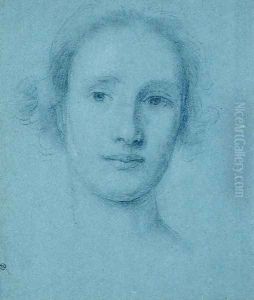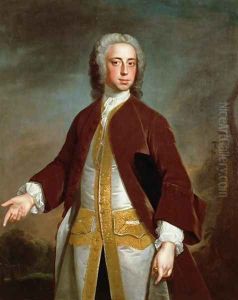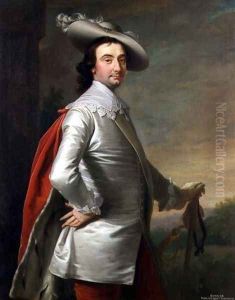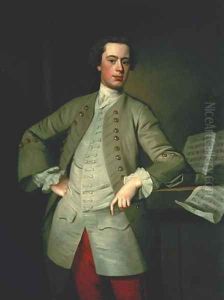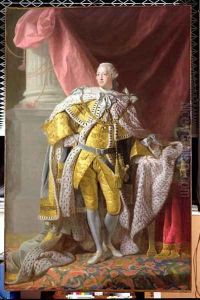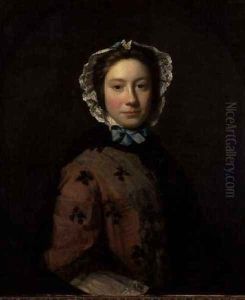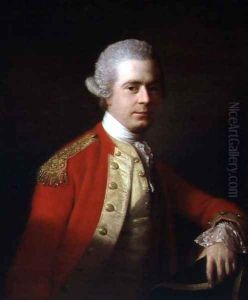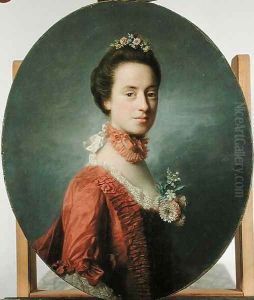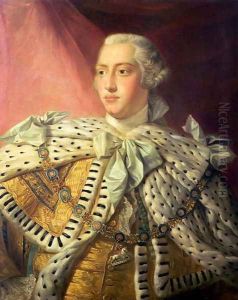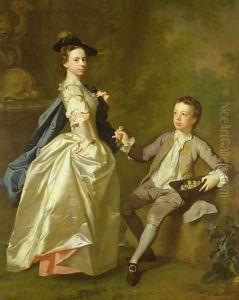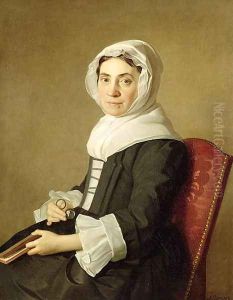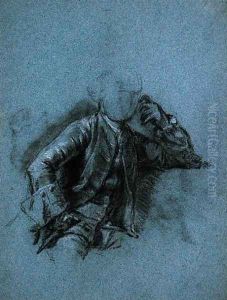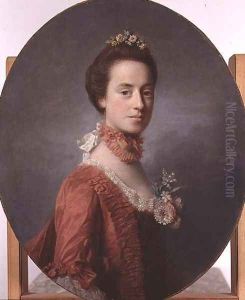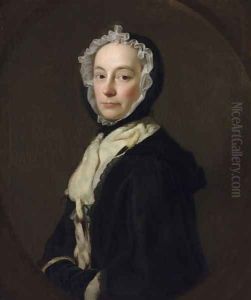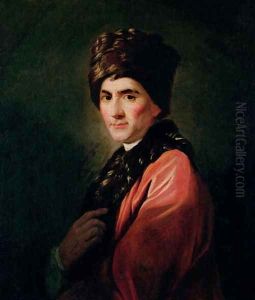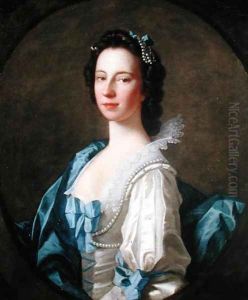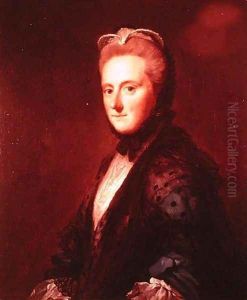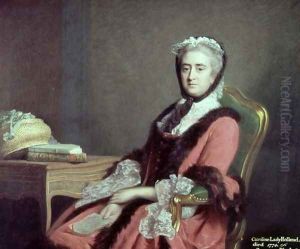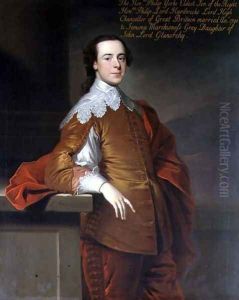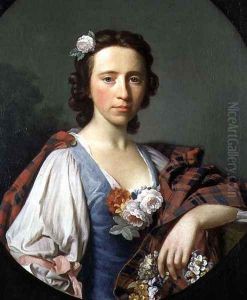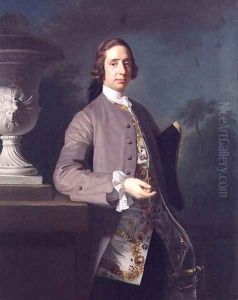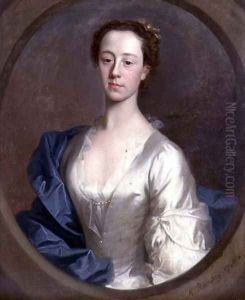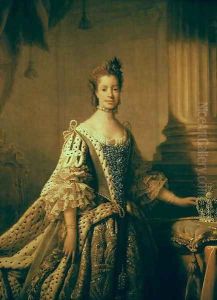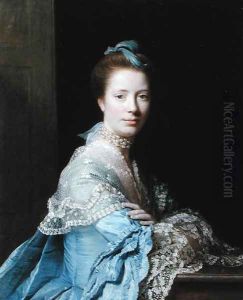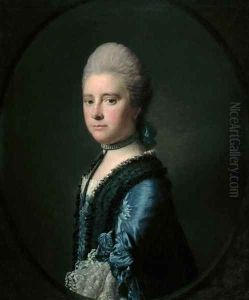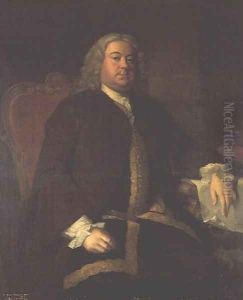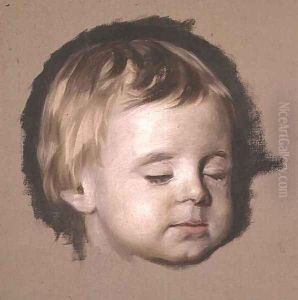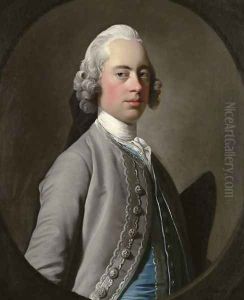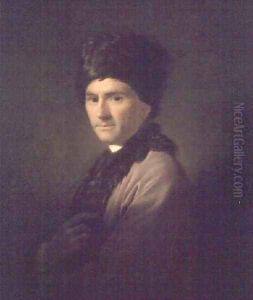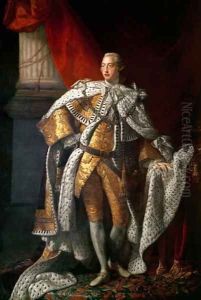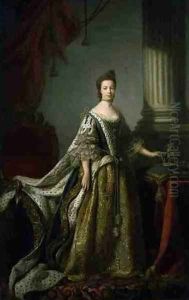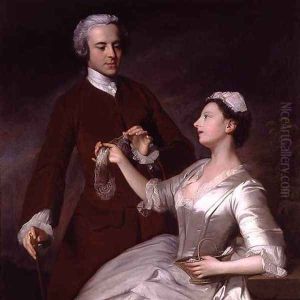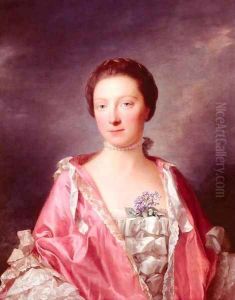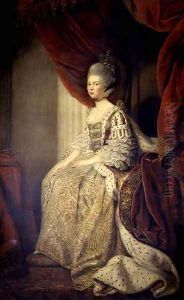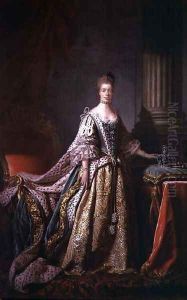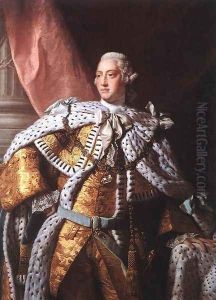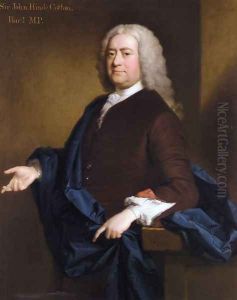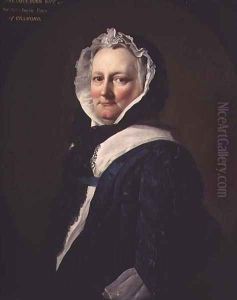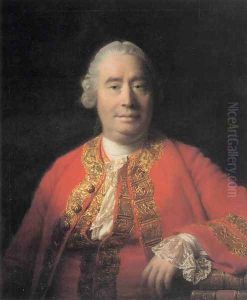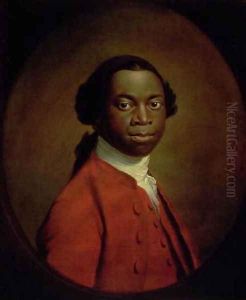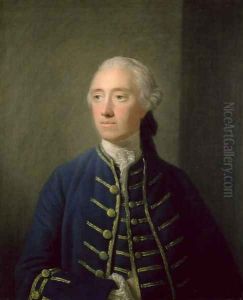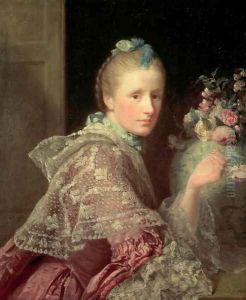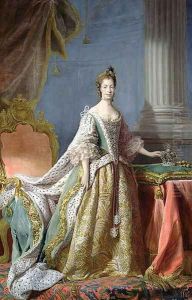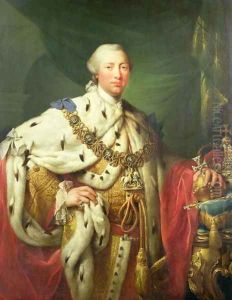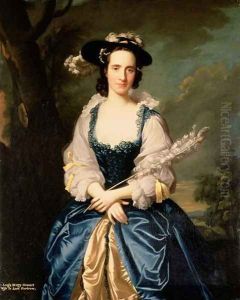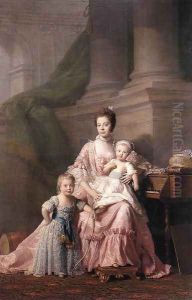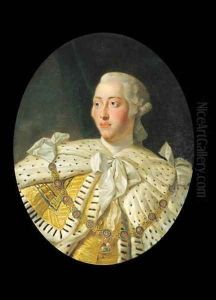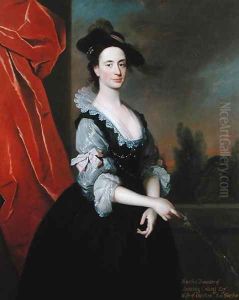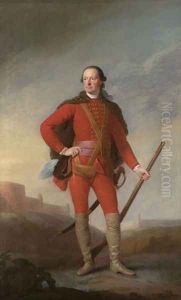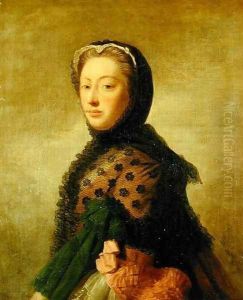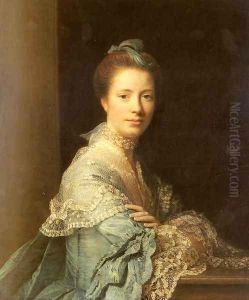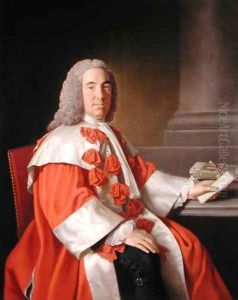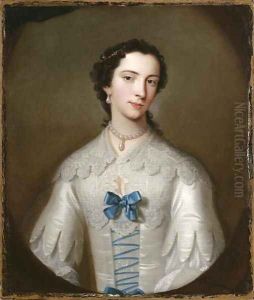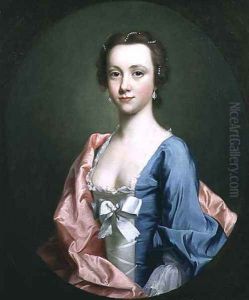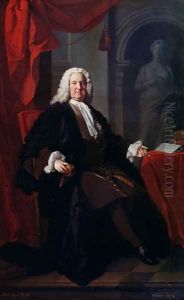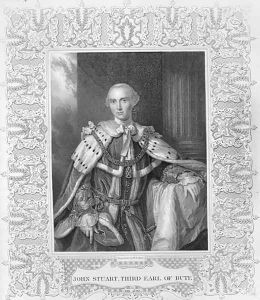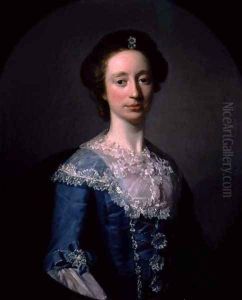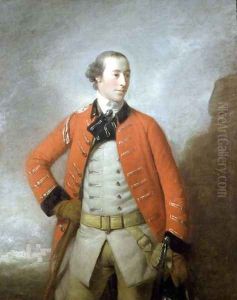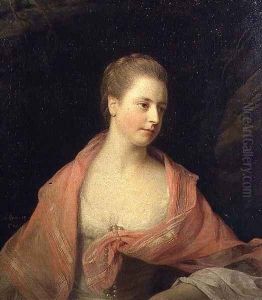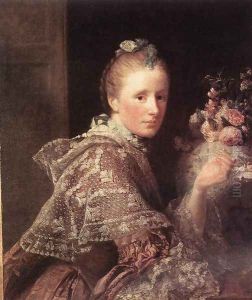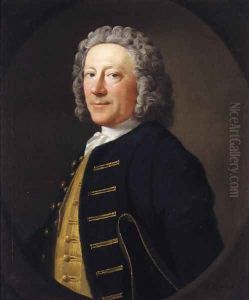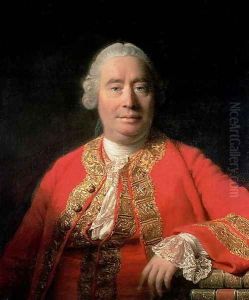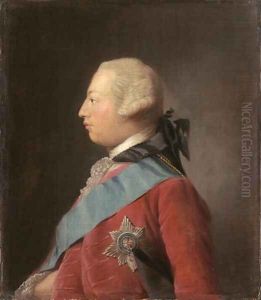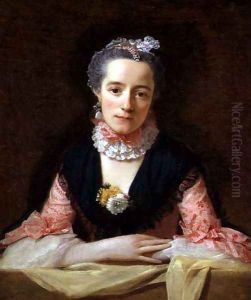Allan Ramsay Paintings
Allan Ramsay was a prominent Scottish portrait painter born on October 13, 1713, in Edinburgh, Scotland. He was the eldest son of Allan Ramsay, a poet and author, and his wife Christian Ross. Ramsay initially pursued literary studies, which were of great interest to him due to his father's literary background, but he soon turned his focus to painting.
Ramsay's early artistic training began in Edinburgh under the tutelage of the Scottish painter William Smibert. In 1736, he moved to London, where he studied with the Swedish painter Hans Hysing and at the St. Martin's Lane Academy, an important precursor to the Royal Academy. Ramsay's ambition to refine his skills further took him to Italy in 1736, where he remained until 1738. During his time in Italy, he was heavily influenced by the works of the Old Masters, and his style began to develop a more classical and refined edge.
Returning to London, Ramsay quickly established himself as a successful portraitist among the British elite, including intellectuals, politicians, and members of the royal family. He was particularly noted for his graceful and elegant portraits of women. His work was characterized by a subtle use of color and a skilled rendering of fabrics. Ramsay's portraits were praised for their naturalism and the way they captured the character and personality of his sitters.
In 1757, Ramsay was appointed Principal Painter in Ordinary to George III, a significant honor that provided him with a steady stream of high-profile commissions. He painted several portraits of the king and the royal family, becoming one of the most prominent portrait painters in Britain at this time. His portraits of Queen Charlotte and King George III remain among his most well-known works.
Apart from his artistic career, Ramsay was also a keen intellectual, involved in the Enlightenment circles of London and Edinburgh. He maintained friendships with leading figures such as philosopher David Hume and economist Adam Smith.
Allan Ramsay retired from painting in the early 1770s due to ill health, and he devoted his remaining years to the study of ancient Greek literature and culture. He passed away in Dover on August 10, 1784. Ramsay's legacy endures, and his portraits are held in high regard for their contribution to British 18th-century art. They can be found in major museums and galleries around the world, including the National Gallery of Scotland, the British Museum, and the Metropolitan Museum of Art.
